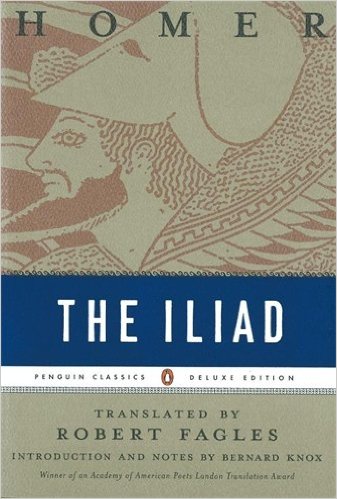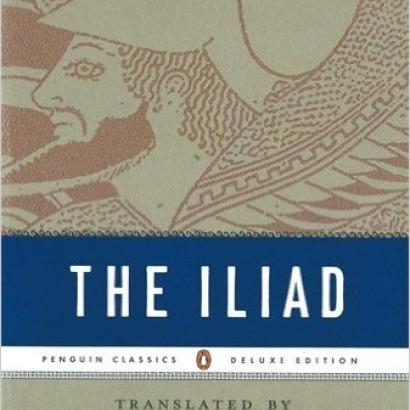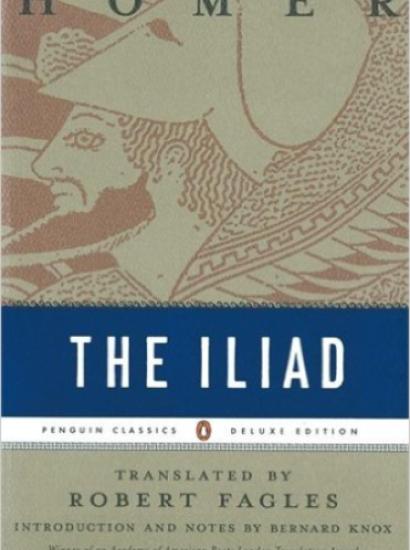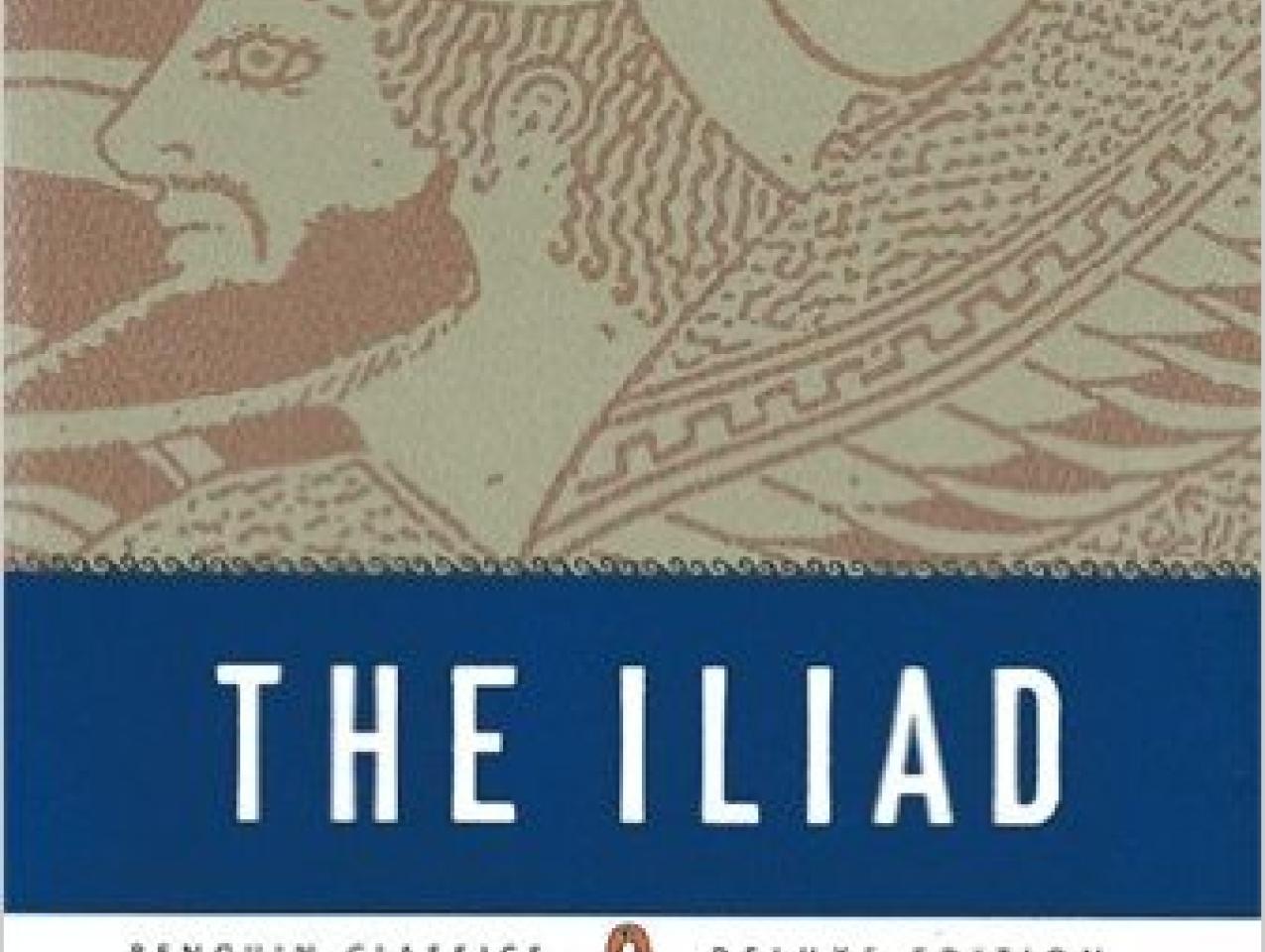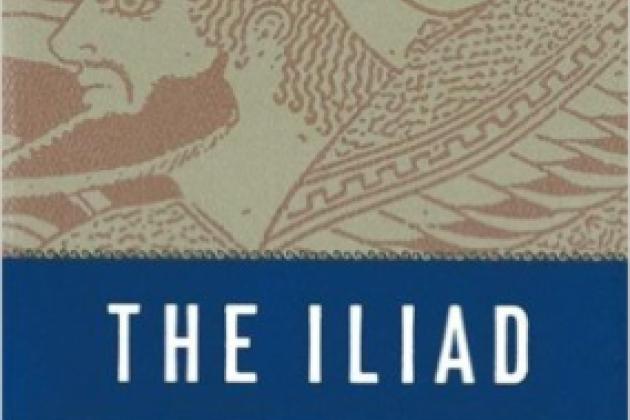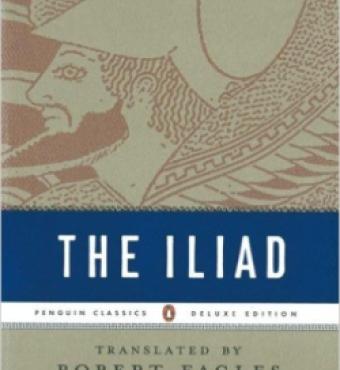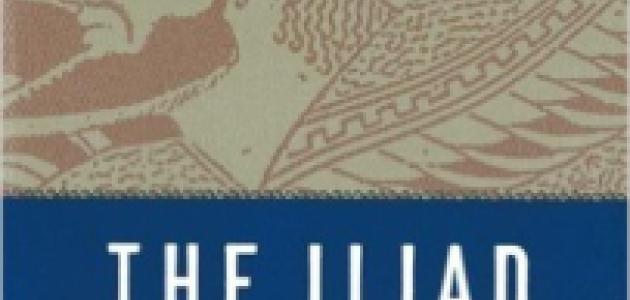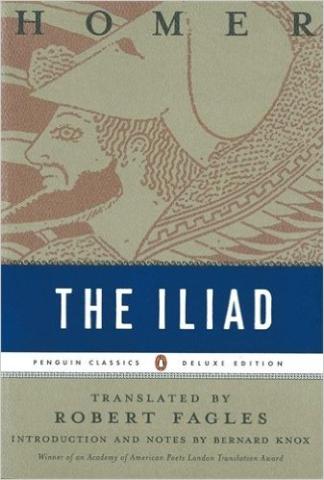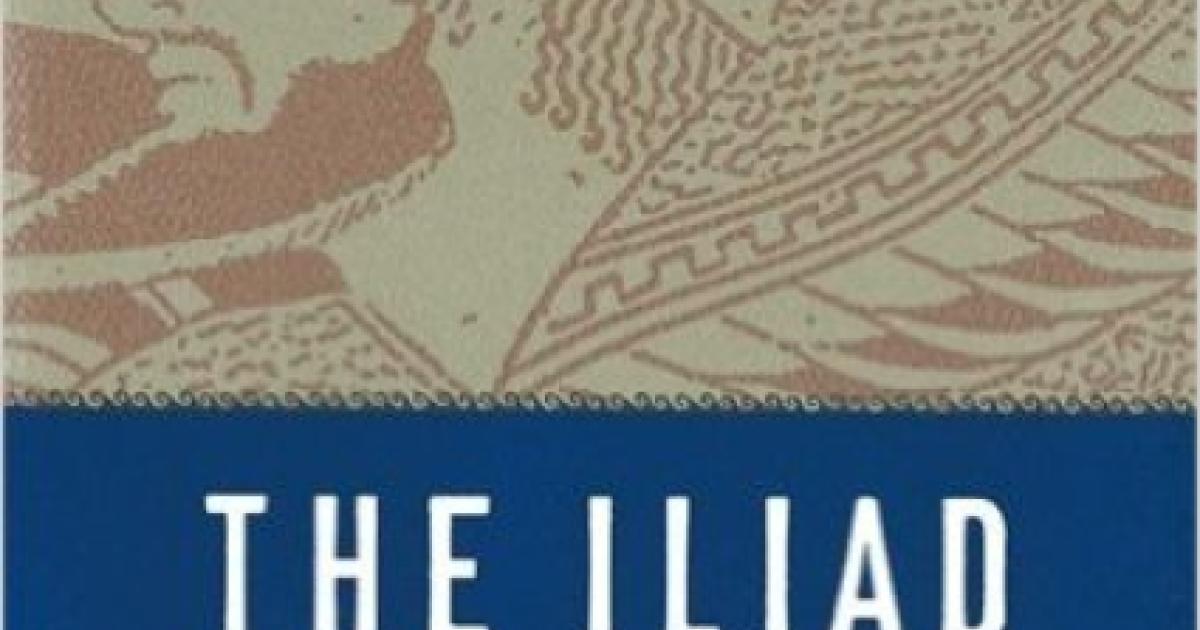The first great literary work in the Western literary canon, the Iliad, has gradually declined in its use in American university and college courses, undoubtedly because it is about the murderous sharp end of war and makes no bones about the fact that it regards its heroes as representing the height in human achievement. Told in exquisite poetry, the story is deceptively simple. The leader of the Greek invasion force, King Agamemnon, forces the greatest of the Greek warriors, Achilles, to give up his concubine. Achilles then goes into a sulk, refusing to leave his tent and fight the Trojans. As the Trojan hero, Hector, brings death and destruction to the Greeks, Achilles refuses all the entreaties of his comrades to rejoin the fight. Nevertheless, he allows his best friend Patroclus to don his armor, but that armor proves no protection against Hector. The death of Patroclus leads Achilles to return to the battlefield, where he slays Hector, and drags the body of the slain Trojan hero behind his chariot around the walls of Troy. In the end, the gods persuaded Achilles to return Hector’s body to a grief stricken father, Priam, the king of Troy.
To the uninitiated modern reader, the constant reference to the influence of the gods throughout the poem may appear strange and out of place. Yet, these seemingly incongruous interferences of the deities represented the Greek effort to explain what is no more than the seemingly inexplicable interactions of tyche (chance) and human emotions on the field of battle, where terror, panic, accident, and heroism are regular occurrences. To the Greeks such human emotions as well as the impact of chance reflected the actions of the gods in influencing the fate of men. From the modern perspective, Achilles’ rage reflects what modern analysts would refer to as PTSD. And few veterans of the Vietnam War can forget the image of the M-113 dragging behind it the dead body of a Viet-Cong guerrilla. In that case the image of a past world merge all to graphically with the image of the present. In every respect the Iliad represents great literature that speaks to the present.







